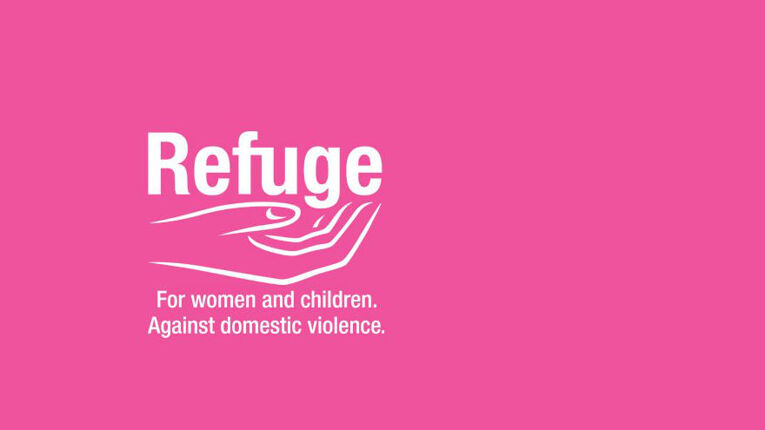Refuge’s Helpline continues to be a lifeline to thousands of women and children experiencing domestic abuse

 Jane Keeper, Director of Operations at Refuge, tells us about the impact of coronavirus on Refuge’s National Domestic Abuse Helpline and the role we all have to play in supporting survivors as lockdown restrictions start to ease.
Jane Keeper, Director of Operations at Refuge, tells us about the impact of coronavirus on Refuge’s National Domestic Abuse Helpline and the role we all have to play in supporting survivors as lockdown restrictions start to ease.
Home is not a safe place for everyone.Over 1.6 million women experienced domestic abuse last year in the UK and when the coronavirus lockdown began, we knew this would be an incredibly dangerous situation for thousands of abused women and children.
While ‘normal life’ ground to a standstill, home became a prison for millions of women and children trapped with abusive partners. Forced to spend the majority of their time indoors and with limited opportunities to seek help from health services, schools and workplaces, Refuge’s National Domestic Abuse Helpline continued to be a lifeline to many during a very challenging and frightening time.
Lockdown has had a huge impact on our services.
Last year, Refuge won the contract to become sole provider of the National Domestic Abuse Helpline and on an average day logs around 270 calls and contacts. Our team of trained female advisers offer non-judgmental, confidential support 24-hours a day, 365 days a year.
We empower survivors to understand their options and support them to make decisions about their future. We offer safety planning, emotional and practical support, help for professionals, access to refuge accommodation and other specialist services, and support for friends and family who are concerned about others. Our Helpline is often the first step for many survivors in their journey to recognise abuse and rebuild their lives.
Calls and contacts to the Helpline have remainded consistently high during COVID-19 lockdown and our website www.nationaldahelpline.org.uk saw an increase in visits of more than 800% compared to pre-lockdown.
At the start of the pandemic our staff had to adapt quickly to remote working, whilst maintaining secure systems. Lockdown restrictions gave perpetrators of abuse unprecedented power and control, and our staff received an overwhelming number of calls from women and girls seeking support on how to stay safe, as well as from many who were disclosing abuse for the first time.
Although domestic abuse is the biggest issue affecting women and children in society today, many people still find it challenging to recognise the signs and understand the rights and legal options available to survivors.
Domestic abuse can take many forms and it isn’t always physical – it’s a pattern of controlling, threatening and coercive behaviour that can also be emotional, economic, psychological or sexual.
Around one in three women aged 16-59 in England and Wales will experience domestic abuse during their lifetime. Refuge’s Helpline staff have worked around the clock to ensure that women and girls self-isolating with perpetrators can still safely access support.
Third parties, including friends, family and neighbours, have also contacted us frequently with concerns about loved ones. It’s understandable that people in this difficult situation often feel powerless, but it’s great that people are trying to understand the dynamics of abuse and find out more about how to give their support.
Recognising there is a problem is the first step and Refuge can provide support regardless of whether a survivor has left their partner or not. If you’re concerned, you can empower survivors by explaining who we are, and that specialist support is available.
Remind survivors they are not alone and if you are worried about their safety, always call 999.
Anyone forced to change their behaviour because they are frightened of their partner or ex-partner’s reaction is experiencing abuse. Non-physical forms of abuse can be just as destructive as physical violence and you may notice survivors becoming more isolated. Abusers sometimes seek to embarrass survivors in front of friends and family, and survivors often appear to be ‘walking on eggshells’ to avoid making the perpetrator angry.
As lockdown restrictions start to ease, and women have been able to think about escaping their abusers, there is immense pressure on domestic abuse services nationally. Refuge supports more than 6,500 survivors on any given day, and we need to ensure that our Helpline can continue to meet demand.
It’s crucial that the details for our national Helpline continue to be known and shared widely. Our specialist staff remain available 24/7 on (freephone) 0808 2000 247. Survivors and third parties can also visit www.nationaldahelpline.org.uk to fill in a secure web form and request a safe time to be contacted, or to access a discreet live chat facility between the hours of 3-6pm Monday to Friday. There is also a wealth of information available at www.refuge.org.uk.
Regardless of COVID, women and girls trapped with abusive partners experience a life of lockdown every day.
Domestic abuse is a crime and if you need support, please contact us. Please don’t suffer alone. Refuge stands with you today, tomorrow and in the future.
Jane Keeper is Director of Operations at Refuge, the country’s largest provider of specialist domestic abuse services. Jane joined Refuge in 1991 to manage the original Chiswick refuge and now oversees all Refuge’s services including outreach services, refuges, culturally-specific provision, independent advocacy (IDVA) services and the Freephone 24-hour National Domestic Abuse Helpline. Jane would like to thank Refuge’s Helpline staff and volunteers for their tireless efforts during this challenging time.